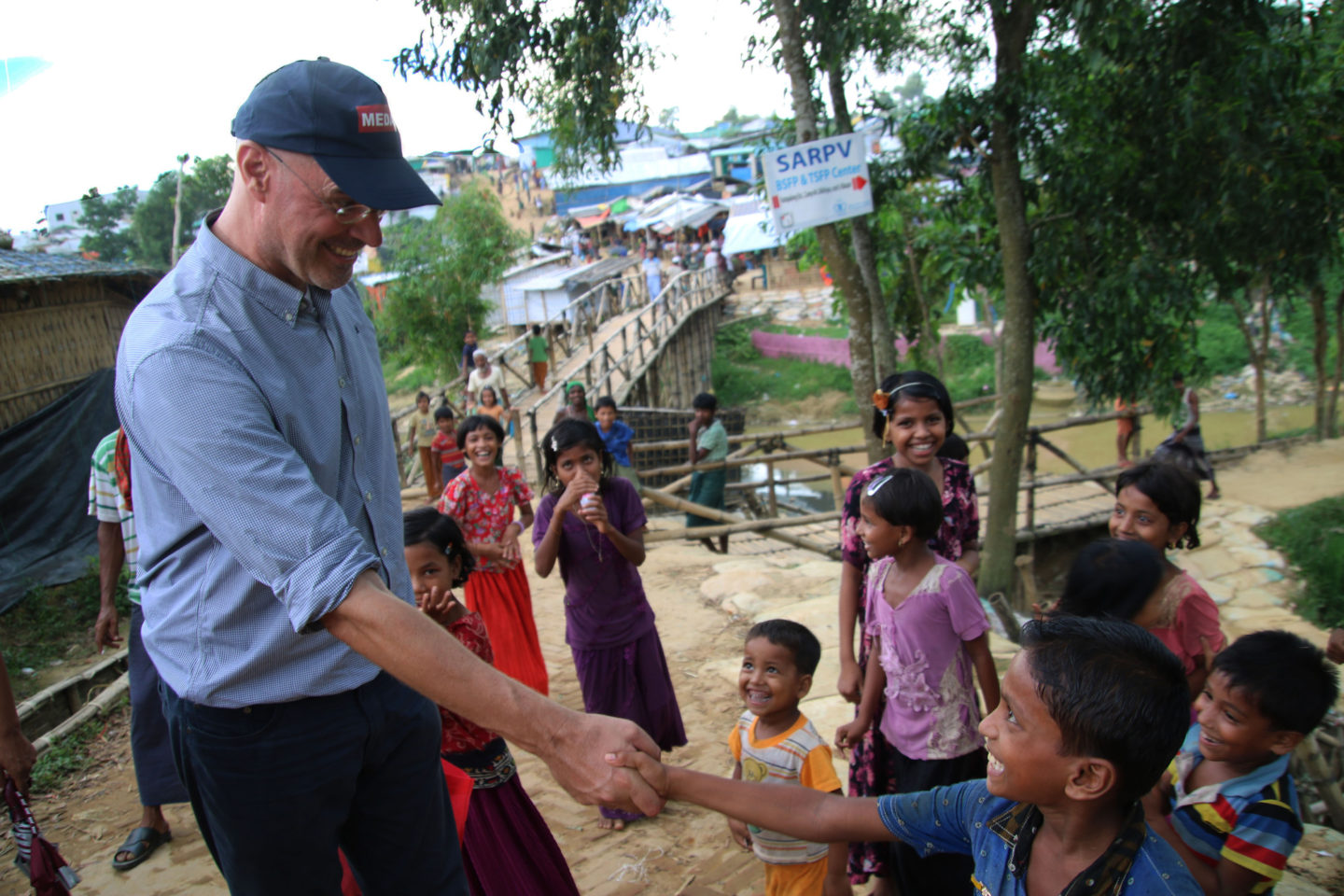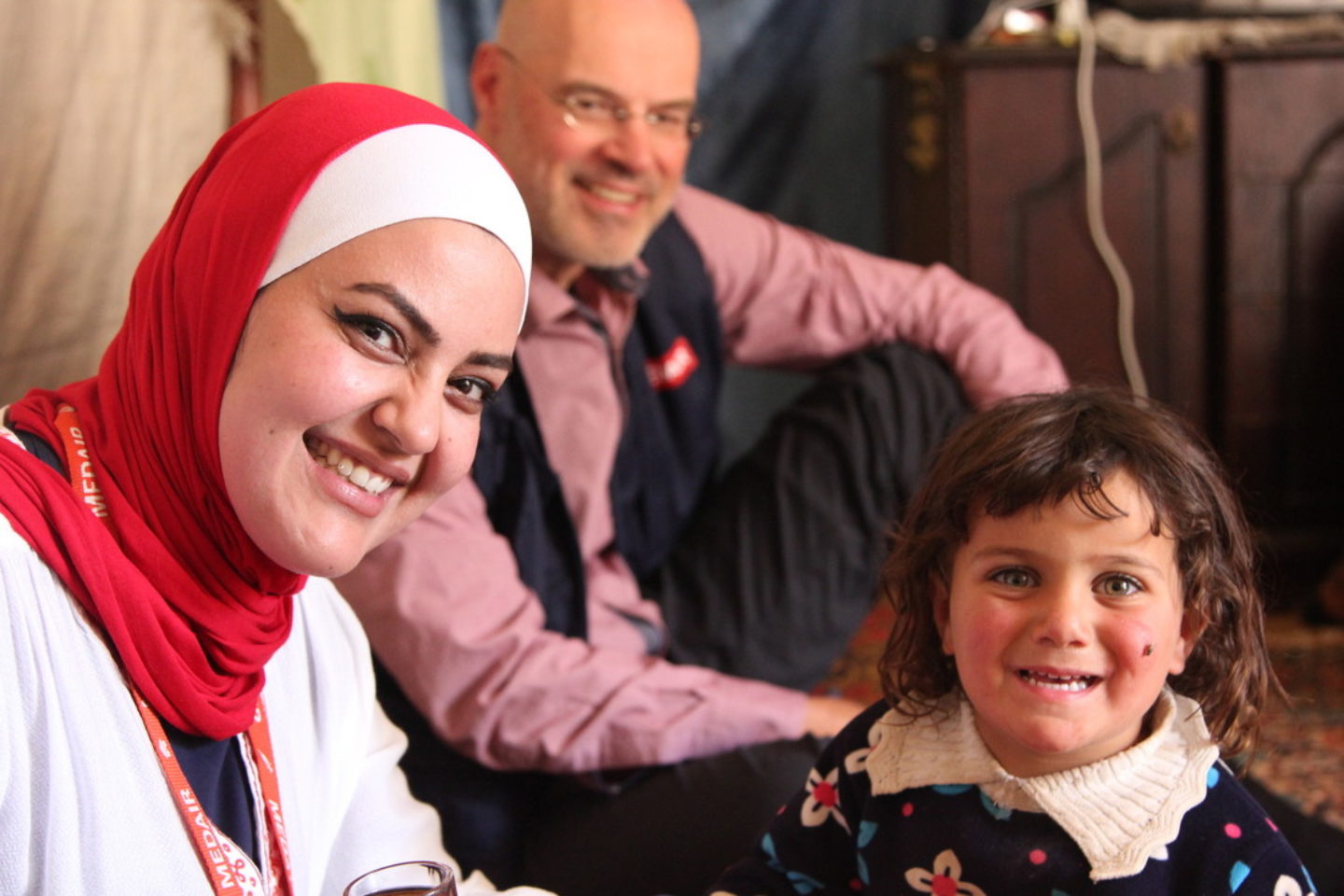Stories
30 years of going the extra mile: Interview with David Verboom, CEO
Medair is celebrating 30 years of service in 2019. In the months leading up to the anniversary, we would like to look back on how far we’ve come and at the many lives that have been impacted.
We sat down with David Verboom, who joined Medair as CEO in 2018, to reflect on what he thinks makes Medair unique and where he envisions the organisation going in the future.

You started your humanitarian career with Medair in 1998. What drew you back to Medair after all these years?
I believe Medair is unique in its concept of what I would call “people-to-people.” First, we choose to go to places where no one else goes, where there are no roads and where access is limited. It’s there where the needs are often the greatest. That’s our mandate—to go to the hardest-to-reach places, stand alongside people, and help those in need in whatever way we can. We bring hope to otherwise desperate situations.
And second, we mobilise people—professionals in their field from all over the world—to go and serve these communities. We train and develop them to be the next generation of humanitarian workers and humanitarian leaders.
I myself am an example of this. After studying engineering and management, I worked as a business consultant in the Netherlands. Inspired to serve those in great need, I was given the opportunity by Medair to go to southern Sudan where I learned how to be a humanitarian worker and eventually a humanitarian leader. That’s the unique thing about Medair. It’s wonderful to be a part of that again.
What difference do you believe Medair is making in the humanitarian community?
I’m convinced that Medair, with its people-centred approach to aid, plays an important role in the future of the humanitarian sector. There is sometimes the risk that organisations in the humanitarian and development sectors begin to operate like businesses, but we want to remain focused on the basics and keep our attention on where it is needed most—the people we serve around the world who are living in crisis.
One way we are putting this into action is through the use of technology. With internet more widely accessible across the globe, our teams go with smartphones and tablets directly to the people we are serving to interview them and document their needs. Whether it is in the jungles of DR Congo, in a refugee camp in Lebanon, or in remote villages in Afghanistan, our teams can gather more personalised information directly from the people about their most pressing needs, how they think we can serve them best, and how they would suggest we improve as an organisation. It’s a way of partnering with people so they have more choices and can develop their futures themselves.

Where do you envision Medair going in the next five years?
Due to global warming and major shifts in weather patterns, the number of natural disasters continues to increase. And sadly, so do man-made disasters—ongoing conflicts like in Syria, South Sudan, and Afghanistan. With the increasing number of crises, roughly 135 million people are in need of humanitarian support every day, according to the United Nations; 65 million people are displaced from their homes either as refugees in another country or displaced within their own country.
There have never been so many people in need as there are now. We need better access to affected communities, more highly skilled people going to these difficult places, and the financial resources to respond to the growing needs.
This global situation, however, is giving the humanitarian sector and us as an organisation the opportunity to ask ourselves important questions like, “How can we be more cost-efficient? How can we be more innovative in our delivery of aid?” As a sector, we are not just looking at tweaking and changing our model a bit, we are actually looking at a total overhaul with completely new models that make better use of the resources at hand to meet the growing demand for humanitarian assistance.
As an organisation, Medair will be changing and adapting its model in order to better serve people in the midst of crisis. We want to work better to bring resources to those living in poverty and affected by disaster and to give them opportunities to decide their own future.
What would you say to our wide family of supporters?
I would say thank you to everyone who is involved in our work—from institutional donors that give big grants to our family of private supporters, every gift makes a difference. I would also say thank you to all the people who volunteer their time and skills on behalf of Medair, to our numerous prayer partners, and to all those who go out to work with us on the field. Whatever way you contribute, it has an impact on people’s lives.
I would like to encourage more people to get involved and to give, pray, and go with us. Share about the needs of the people we serve on social media, join us at an event, start a fundraiser in your community. There are many ways to get involved and it’s only through the support of our partners that we can help people in need. Find out what inspires you and get active!
